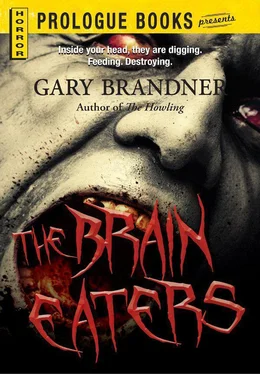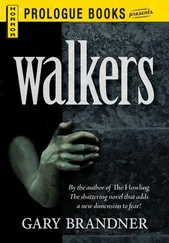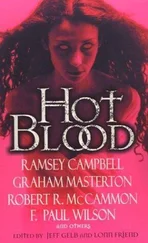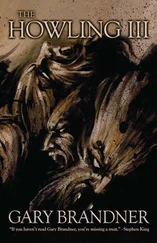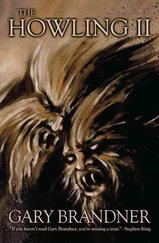“Mr. Raslov, it’s a pleasure to — ”
“Never mind that,” the Russian snapped. “Am I allowed to enter, or am I not?”
“The fact is that Dr. Kitzmiller will admit no one. He can make no exceptions. You understand it is for the protection of both those inside and out here.”
“I understand that this is a grave insult to my country.”
Lou Zachry’s expression hardened. “I think, Mr. Raslov, that diplomatic insults are low priority these days, to Dr. Kitzmiller and to everyone else. Perhaps if you told me your business — ”
“What is your position here?”
“I represent the United States government.”
Raslov considered for a moment, then said, “I have reason to believe that a countryman of mine may have come here and may be inside. His name is Anton Kuryakin.”
“Why would he come here?”
“That is not of immediate importance. Is he here?”
“He is not.”
“Am I to accept your word for that?”
“I’m afraid you don’t have a choice.”
“If he does come here can I depend on you to see that I am informed?”
“I can’t promise that.”
Raslov gave him a long, icy stare. “And you will not allow us inside?”
“I don’t have that authority,” Zachry said.
“Then I must take steps to protect the welfare of my countryman. Furthermore, your government may expect this matter to be protested in the strongest possible terms.”
Zachry nodded gravely and watched the Russians get back into their hired car. They drove a little way down the highway and stopped.
Go ahead and park there, he thought. Park there till Moscow votes Republican, for all I care. He nodded briskly to the guard and walked back inside. He turned to watch the security man relock the gate behind him.
• • •
Anton Kuryakin bounced on the stiff springs of the pickup truck as he drove along, gripping the wheel. The big, cushiony sedan had succumbed outside Hortonville to concealed damage to the radiator sustained in the collision with the light standard in Milwaukee.
Kuryakin had abandoned the sedan and walked a mile to the nearest farmhouse. When no one answered his knock there, he opened the door, to find a family of four sprawled in various grotesque attitudes. They had been dead at least two days. He shooed away the fat buzzing flies long enough to remove from the man’s overall pocket the keys to the truck parked in front of the house. The pickup was a no-nonsense, serviceable machine, closer to the Russian automobiles than the spongy sedan he had driven from Milwaukee.
The clouds had lowered in the sky and darkened to a dull slate gray. The heat pressed down like a giant hand. Kuryakin rolled down the windows on both sides of the cab and removed his heavy suit coat. He rolled up the sleeves of his shirt.
On the seat next to him was a yellow-billed cap of the kind that adjusts to all head sizes. On the front of the cap was the name John Deere, which Kuryakin recalled was an American manufacturer of farm machinery. He tried the cap on and regarded himself in the rearview mirror. It looked rather well, he thought. He left it on.
He drove on along the highway he had carefully plotted on the map and slowed the pickup when he felt he must be nearing Biotron. He searched for familiar landmarks, but along that stretch of highway everything was the same — neatly kept farmhouses, with their cluster of outbuildings, separated by patches of dense forests.
Then, suddenly, there was a tall chain link fence on his right with posted warnings for trespassers. The truck passed a clump of maple trees, and Kuryakin saw up ahead the guard shack and gate of the Biotron plant.
Kuryakin’s elation died abruptly when he saw the limousine parked outside the gate. A small knot of men stood beside the machine, talking. There was no mistaking the dark, poorly cut suits of Viktor Raslov and the KGB men. Kuryakin kept his eyes on the road, his hands on the wheel, and drove on past the gate, being careful to maintain the same moderate speed. He gave silent thanks for the yellow cap and the rolled-up sleeves. A pickup truck such as he was driving was a common sight on Wisconsin roads, but even had someone taken the trouble to look at the driver, he would pass for an American farmer.
The trouble was that now he would have to wait. And like Frederich Kitzmiller, Anton Kuryakin was keenly aware that for every minute that slipped by, more people would die.
The pain came and went in waves for Eddie Gault as he trundled the old van along the road toward Biotron. He had to keep slowing down as the fierce headache hammered at him and dimmed his vision. He kept up a constant muttered monologue in an attempt to focus his mind away from the pain.
No matter what image he tried to conjure up, Eddie’s thoughts kept returning to Roanne Tesla. From the beginning he had questioned why anyone so beautiful and so much smarter than he would love him. It was a doubt he had kept tucked back out of sight while he enjoyed her attentions, but it never quite died. Now, in the moments when he was lucid, Eddie grew convinced he had been used. The thought made him angry, and the anger helped him stand the pain.
All of Roanne’s talk about the purity of the natural environment and the greed of the big companies had been easy enough for him to accept. Eddie had not possessed any strong opinions of his own, and he was happy to adopt Roanne’s in exchange for the sensual pleasures she delivered. Now he wished he had spent more time asking her about her motives and less time with his cock in her mouth.
As he neared the Biotron gate, Eddie ground his teeth in an effort to maintain control against the devils that wanted to come screaming out of him. He had things to tell Dr. Kitzmiller, and he had to hold on that long.
He saw the black limousine parked on the other side of the road, but he could not be bothered thinking about it. Faces were visible behind the smoked glass, but they were no more than white blobs to Eddie. He passed the limousine and turned in at the gate.
Two men in civilian clothes came out from the guard shack to meet him. Others in uniform watched warily.
“Eddie Gault?” one of the men said. He was taller than his companion and wore a neat moustache. Both men were about thirty and looked to be in good physical shape.
Eddie nodded, relieved that he would not have to make the effort of identifying himself. Dimly, he wondered how they came to be expecting him, but the thought did not take hold.
“Come with us, please,” the man said in a voice of quiet authority.
He got out of the van, grunting with pain from the small jolt when his feet hit the asphalt.
“Over here, please.” The second man, the clean-shaven one, took Eddie’s arm and led him to a beige Plymouth that was parked next to the guard shack.
“Dr. Kitzmiller,” Eddie got out with an effort. “I got to see Dr. Kitzmiller.”
“We’re going to take you to him,” said the first man. “Get in the car, please.”
Eddie got into the back seat of the Plymouth with the clean-shaven man. The one with the moustache got behind the wheel. They drove away, keeping the windows rolled up despite the fact that the car had no air conditioning. Eddie was sweating heavily before they had gone a quarter of a mile.
“Where … where we going?” Eddie said with difficulty. Each word he got out felt as if it pulled a little bit of his brain with it.
“We’re taking you to see Dr. Kitzmiller,” the driver said, not looking at him.
“He’s … back at the plant,” Eddie managed. “I saw him on TV.”
The driver glanced back at the man sitting next to Eddie, who said, “He had to leave the plant for a little while. We’re taking you to him.”
Читать дальше
